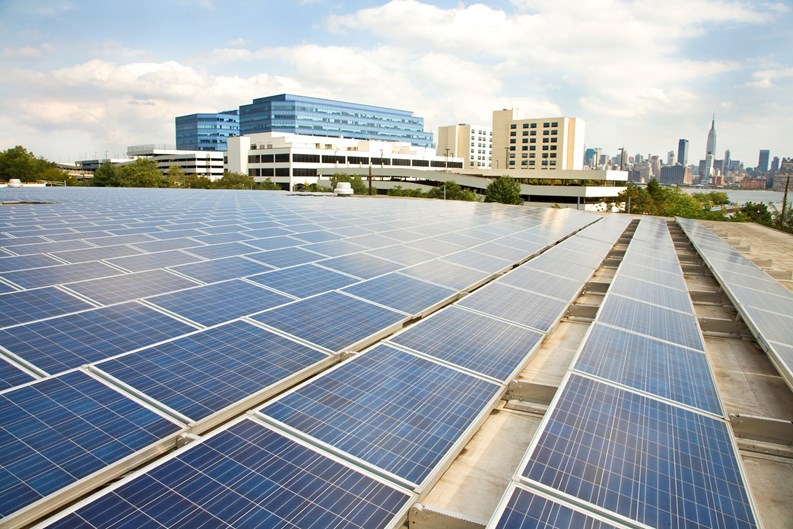Once prevalent as a residential alternative in the suburbs, solar energy
is having a bit of a moment in New York City. The New York Times
recently chronicled how solar
is making headway in the city proper, amid the vast high-rises
that dot the skyline. As co-ops and condos are constantly looking for
improvements that will both increase the value of their properties
and save unit owners and shareholders a few bucks, solar is
increasingly looking like a viable option for those concerned with
both the environment and their bottom lines.
The Cooperator spoke with Zvi Aranoff of Siger LLC, the manager of a two-building condo association called Butler Heights in Brooklyn, about shepherding a solar conversion at his property, the value associated with doing so, and what's next in his quest for energy efficiency.
How long ago did you adopt solar technology at Butler Heights, and what was the impetus for the decision?
I met Ronnie Mandler of Best Energy Power, who installed our panels, when he was working on another building adjacent to one that I managed. And the main thing that convinced me, and later convinced the association at Butler Heights to do it, was the finances. The monetary aspect of it. At the time of installation, in summer of 2015, the benefits on a federal, state and local level were all very generous. There was a lot of incentive and no real downside. It was basically a no-brainer. I think that the payback was something like two-and-a-half years, which is an extraordinarily quick turn-around.
What had your experience with solar energy been prior to adapting it at Butler Heights?
I grew up in Israel, where solar power is a pretty standard thing, so I was very aware of it in that respect. And I'd say that, were I ever to construct a new building, it's something I would ideally like to incorporate. I'd want my property to be as energy-efficient as possible.
What else have you incorporated at Butler Heights, in regard to sustainability?
We've done a lot of measures to make the building as efficient as it can be. It's an older building, so it's not without its limitations in terms of what we can and cannot do. But we changed from oil to gas many years ago. We use energy-efficient light bulbs throughout the building. Instead of six 60-watt bulbs per floor, we use six 5-watt bulbs, totaling a mere 30 watts per floor. We also did a lot to reduce leaks; we made faucets and toilets more efficient. And there's not much more that we can do outside of solar. We're looking into weatherproofing certain things, but beyond that, I think that we've done what we can in the location that we have.
Did you get any pushback from the residents at all from your solar advocacy?
Nope. We looked at the numbers and everyone was okay with it. There was just no good reason not to do it. The only issue that we had was how to work it out such that we maximized the available tax credits. It's easier in a co-op where everything goes through the HOA. But in a condo, the question becomes, if the building is the one that pays for it, and a building pays almost nothing in taxes, how do you make use of a substantial tax credit?
So we conducted a special assessment of each owner, equivalent to the amount that they would be receiving in government benefits. Say the individual owner would receive $532, then that's what they would be required to pay into the reserve fund, such that they could claim that they actually made a payment and thus receive their credits. This ensures that they wouldn't be put at a disadvantage by the assessment and that the credit wouldn't get wasted. But the benefit only applies to people whose unit is their primary residence. Investors, on the other hand, would only receive a portion of the credit, not the full benefit.
Is there a discernible difference in the energy output now that you've adapted solar?
You would never know the difference. The only real change is that if someone should want to use the roof for something else - like to potentially install a deck, for example - they would have an issue due to the panels. But unless and until anyone proposes that, it's purely hypothetical. And while Butler Heights doesn't have this problem, I have heard that improperly-installed panels can cause leakage - and in a different, non-condo brownstone property we have, the panels themselves sometimes produce an grinding sound when there's a strong wind, which can be annoying.
Are there any other perks to the system that you'd like to mention?
The system that Best Energy Power installed is accessible online. I can log on and inspect each individual panel, and I get an alert to my phone if one stops working. It's extremely efficient and the whole process has been very easy thus far.
For more information about solar energy in New York, visit this webpage from the New York State Department of Environmental Conservation.
Mike Odenthal is a staff writer for The Cooperator and other publications.







Leave a Comment